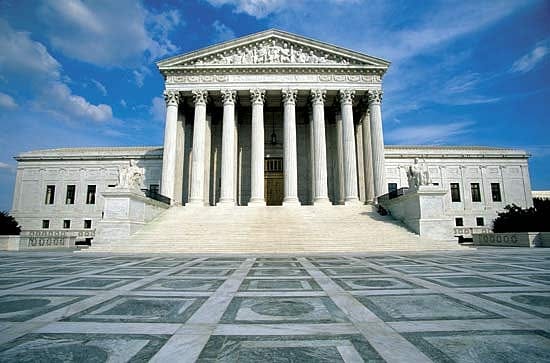Trump’s Supreme Court Pick Could Tilt Balance For School Choice

The U.S. Supreme Court will soon be hearing the case of Trinity Lutheran Church of Columbia Inc., v. Pauley. Despite being about recycled tires that can be used to resurface playgrounds, it may have a far-reaching impact on movements for school choice and religious liberty.
The Missouri Department of Natural Resources offers grants for playgrounds to turn scrap tires into soft surfaces for playgrounds. The Trinity Lutheran Church of Columbia, which operates a daycare with an attached playground, applied for such a grant. Despite a high ranking in the grant process, the daycare was ultimately denied a grant due to Missouri's Blaine Amendment. The Missouri Constitution (Article 1, Section 7) states:

